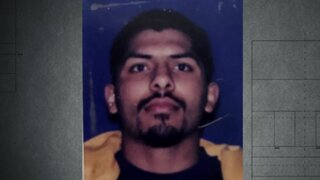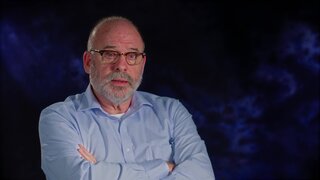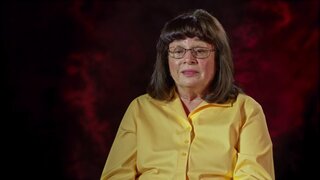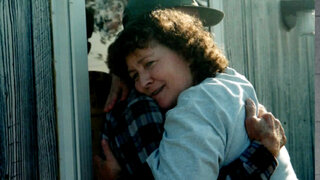Create a free profile to get unlimited access to exclusive videos, breaking news, sweepstakes, and more!
Man Kidnapped And Murdered On His Future Brother-In-Law's Orders In Order To Stop The Wedding
When Gonzalo Pizano-Guzman was found dead in a ditch and his car was burned, no one could understand why someone would want a happy, hard-working young man dead months before his wedding.
The family of Gonzalo Pizano-Guzman, 20, reported him missing almost immediately after they noticed he was gone on July 7, 2000.
“That morning, my mom saw that Gonzalo’s bed was made,” his sister Juana Pizano told “An Unexpected Killer,” airing Fridays at 8/7c on Oxygen. “Like no one slept there. So she obviously got all concerned that he didn’t come home last night ... And we’re all freaking out because this is not who he is and what he does. It’s so odd, it’s not normal.”
The family drove throughout their small hometown of Cornelius, Oregon, searching for answers. When they couldn't find his car, they reported him missing to the police.
“The family was extremely distraught by this disappearance,” said Washington County Sheriff’s Office Sergeant Scott Ryon told "An Unexpected Killer." “He doesn’t miss work without calling in. They couldn’t reach him by pager or telephone.”
The family kept looking — and soon Gonzalo's father found Gonzalo's car burned out in an empty field.
“He rushed to the car, opened up the car, and didn’t find any body,” explained brother Ben Pizano. “So once that happened, it was just … that’s 'Where’s he at? Is he kidnapped? Is he dead?' It was even worse.”
They called the cops to the scene.
“The car was totally destroyed by fire,” Washington County Sheriff’s Office Det. Mike O’Connell told "An Unexpected Killer." “It appeared that the car might’ve been heavily doused with accelerant, probably gasoline.”
But the only other evidence were a few discarded zip ties near the car.
Police then received a call from a woman — 11 miles away from the car at Henry Hagg Lake — saying she saw what looked like a dead body in a ditch.
“This young man matched both the physical description, the clothing, and the jewelry,” said Ryon. “At this point, there was no doubt that this was Gonzalo .... It was clearly a homicide. There was evidence of bullet wounds on the body and what appeared to be repeated knife blows to the heart. We also discovered some injuries to the back of the head, and it was evident the young man had been bludgeoned."
Though Gonzalo's wallet and pager were missing, he still had two religious medals on gold chains around his neck, one of two suggestions that the motive wasn't robbery. The other was the zip ties found near the body, which matched the ones found at the scene of the car.
“This case was puzzling,” said Ryon. “There didn’t seem to be a strong motive as to why this young man was murdered. Everything was going good in his life.”
They started by interviewing his fiancée, Sol, who they initially thought had been the last person to see him alive.
Sol told police the night he disappeared, they’d been sitting on the front porch going through wedding planning but they hadn't been alone: Her cousin, Jaime, and his friend, Eddie, were shooting baskets by the garage.
Jaime and Eddie told police that, as he was leaving at 9:15, they’d asked Gonzalo for a ride because they were running late for work at the Hawthorn Farm Athletic Club & Spa, about 20 minutes east of Cornelius, in Hillsborough. The two worked on a janitorial crew run by Sol’s brother, Rafael Mora-Contreras, and were supposed to start at 10:00 p.m.
Eventually, they said, Mora-Contreras had picked them up at Eddie’s house and they all worked until 4:00 a.m. Rafael confirmed the story.
“Rafael was an incredibly self-possessed 19-year-old,” Andrew Erwin, Washington County deputy district attorney Andrew Erwin told "An Unexpected Killer" of the young entrepreneur.
Police then received Gonzalo's autopsy report, which put his time of death around 10:00 p.m. on July 6 — hardly 45 minutes after he'd said goodbye to Sol. The brutality of the attack suggested the killer was someone he knew.
“The close cluster of the knife wounds directed at the heart did speak of extreme animosity, some violent emotion,” said Erwin.
Police went to his place of work to see if anyone had problems with him and discovered he had been having an affair with a coworker, Bobette. She was very upset to hear that he'd been murdered and admitted she and Gonzalo had been involved for a couple of months. She said that it was just a secret fling: She knew about the fiancée and wasn’t interested in it being more, and he hadn’t been either.
“It crossed our mind that Bobette’s feelings were stronger then she led on,” said O’Connell — but she'd been out running errands the day of the murder and her alibi checked out.
However, Bobette suspected that her abusive ex-boyfriend Oscar Rodriguez could have been involved.
Rodriguez, it turned out, had quite the criminal history and he was not keen to cooperate with investigators. But Rodriguez, it turned out, was serving time in the local “restitution center”: a secure facility that allowed inmates out on work release on a pass system. And like everyone there, he was locked down at night and thus couldn’t have killed Gonzalo.
Investigators didn’t have any other leads, and it stayed that way for two more months. They then decided to talk to everyone again, so they went back to Eddie and Jaime, the last people to see him alive, to ask them to take polygraphs.
The pair had cold feet but, on Sept. 14, Eddie went in to take the polygraph.
“The polygrapher was hooking Eddie up, attaching these leads to him to measure his response," said O’Connell. “He doesn’t even get to the questions and Eddie says, ‘OK, I’ll tell you what happened.’”
“He disclosed that he’d actually been approached by his boss, Rafael, who was Sol’s brother, to coordinate delivering Gonzalo to the Forest Hills Country Club parking lot,” said Ryon, which was on the south side of Cornelius, rather than east toward their work site.
Eddie added that Mora-Contreras enlisted Joe Noble, another friend of his, as well as Eddie and Jaime for part of a plan to get Gonzalo. Eddie and Jaime were to get Gonzalo to drive them in his car to the golf course, which they did. When they pulled up and Eddie and Jaime got out of Gonzalo’s car, Noble got into the car and pointed the gun at Gonzalo. Mora-Contreras was there in his white Ford F150, and the two of them left with Gonzalo, while Eddie and Jaime got in their own vehicle, drove home, and waited to go to work as usual.
Eddie also said Mora-Contreras wasn't a young, legitimate entrepreneur: He was an active drug dealer.
But Eddie couldn't explain why Mora-Contreras wanted Gonzalo dead; that part was left to Sol.
She told police that Mora-Contreras had tried to talk her out of the wedding, saying she was too young. They also discovered Mora-Contreras would often mock Gonzalo — even to his face — for being poor, driving a terrible car, and buying cheap wine, and had often threatened to trash Gonzalo's car.
Noble, police discovered, was known as a small-time criminal. An informant then told police he was concerned that a .40 caliber pistol he’d sold to Noble might have been the murder weapon because Noble had later asked a woman he met at a local bar to provide an alibi for him on the night of the murder. The woman confirmed Noble had asked her for an alibi but they weren’t together on the evening in question.
Police then brought Noble in for questioning, and he swore he had nothing to do with it — even offering up his fake alibi. When police said they'd already spoken to the woman, he lawyered up and was released.
Mora-Contreras, meanwhile, had disappeared. Police issued an arrest warrant on Sept. 28 on a charge of aggravated murder and kidnapping. They found him that same day hiding at his girlfriend's house, having dyed his hair orange.
Joe Noble was brought back for questioning and admitted to being in the parking lot, and being there when the car was later burned. He also admitted to kidnapping and pistol-whipping Gonzalo, insisting it was Mora-Contreras who ordered him to do that.
Police also got a warrant for Mora-Contreras' phone records, which showed that his phone was not pinging off the tower near the gym he worked at, but off a tower near where Gonzalo’s body was eventually discovered.
In 2003, Noble and Mora-Contreras went to trial together for aggravated murder and first-degree kidnapping. Prosecutors argued that Noble shot Gonzalo, but it was Mora-Contreras who stabbed him. At trial, a new witness testified Mora-Contreras had bragged about killing Gonzalo, mocking him for having begged for his life.
On April 28, 2003, Noble and Mora-Contreras were found guilty of murder; the former was sentenced to life with a possibility of parole after 25 years, while the latter was sentenced to life with no possibility of parole.
In 2008, however, Mora-Contreras filed an appeal on the bases of ineffective counsel and having been tried with Noble rather than separately. In 2017 — 14 years after his initial conviction — a judge ruled in Mora-Contreras' favor and ordered a new trial. The Oregon Department of Justice refused to appeal the decision, and Mora-Contreras was returned to the Washington County Jail to await a new trial.
The office grew concerned, as the potential new trial approached, that too much had changed.
"Some witnesses have died, others have become uncooperative, and significant evidence is no longer available to the State," they said in a 2020 statement. "Furthermore, the legislature has since amended the Oregon murder statutes in ways that benefit criminal defendants."
In May 2021, rather than going to trial again, Mora-Contreras was allowed to plead to manslaughter in the first degree and kidnapping in the second degree. His sentence was reduced to 25 years and 10 months and he will be eligible for parole in July 2024.
Noble, the statement said, would not be eligible for parole until 2031.
The family expressed dismay last year with the resolution of the case.
“We were blindsided, we didn’t see this coming,” Juana told Portland ABC affiliate KATU in 2021.
For more on this case and others like it, watch "An Unexpected Killer," airing Fridays at 8/7c on Oxygen, or stream episodes here.






















